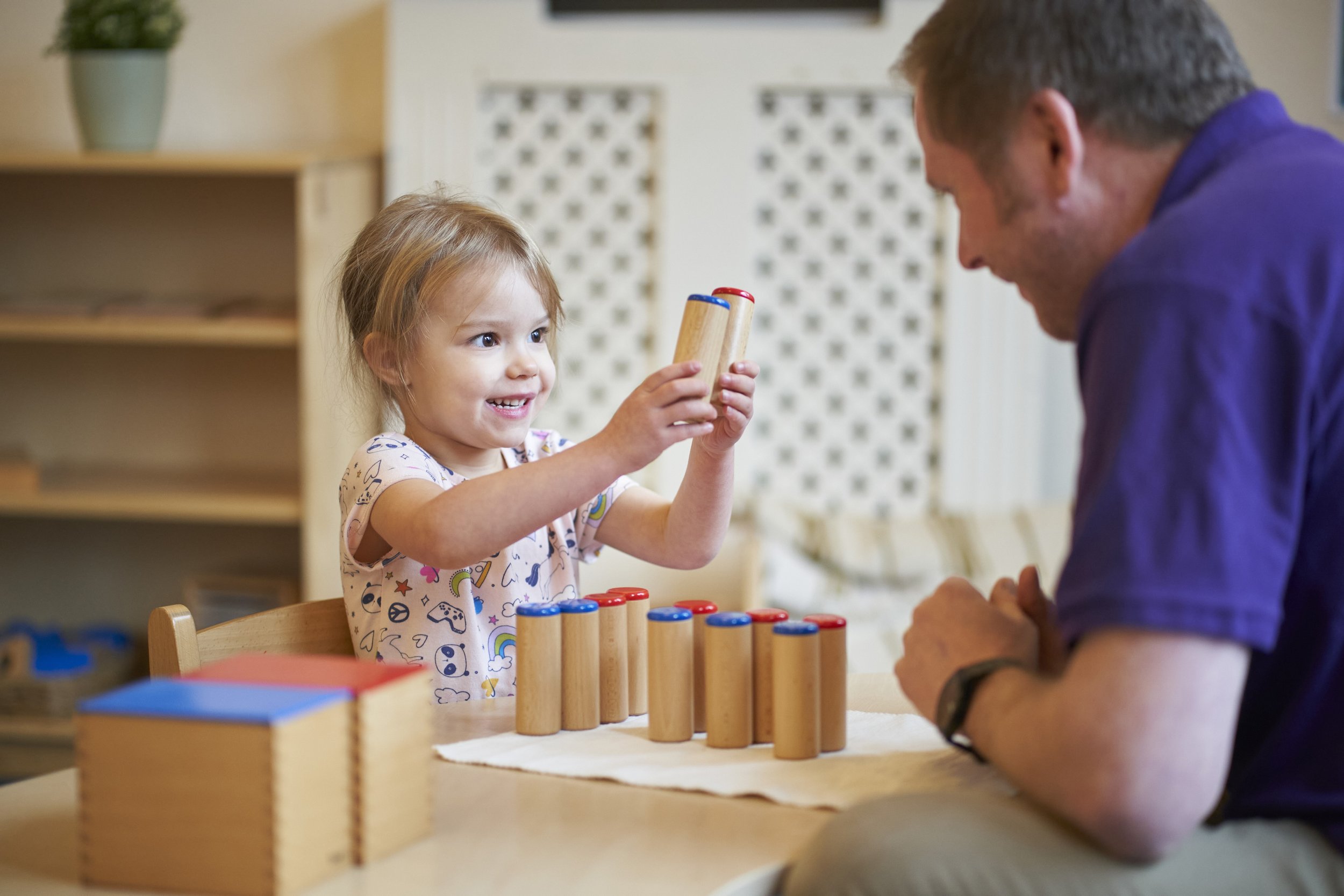
Young children and ethical encounters in research: learning for sustainability in the early years.
In this guest post Dr Opeyemi Osadiya discusses her BECERA presentation which aimed to highlight how ethical encounters with young children were successfully navigated during research whilst learning for sustainability in an early years setting in England.

My first academic conference presentation: a gift that has kept on giving
In this guest post, Daniel Kuria shares his experiences of attending BECERA Annual Conference and presenting his research for the first time.

Who gets what? How Early Childhood Education shapes developmental inequalities in the early years
In his guest post, Dr James Hall discusses a new tool to model how selection effects influence both access to ECE and its impacts towards developmental equalities.

Children should be seen and heard!
In this guest post Melanie Yates-Boothby talks about her PhD research that aims to understand motivation and behaviour from the children’s perspective, and what inspired her to help create a more inclusive and supportive environment for all.

How ethical encounters with young children are embedded holistically throughout practice in the Inspiring Foundations (IF) Team of maintained nursery schools
In this guest post authors discuss why ethical encounters are an essential part of their research and practice; they explore what this means to their team and how it is integrated within practice.


Whose adventure is it anyway? Redefining adventure through the ethical entanglements of autoethnography
Victoria Jefferies recounts one of the observations undertaken during her research and explains how allowing the situation to unfold led to adventure and ethical dilemmas for both children and the educator.

Exploring the concept of child to staff ratio in England: A childminder perspective
In this guest post Susanne Rice talks about her exploration of the connection between adult-to-child ratios, language development, and school readiness and why it matters.

Supporting Teachers’ Confidence to Work Ethically in Their Early Years Classrooms: Insights from the Reception Class Teacher Network
In this guest post, authors outline the themes of their upcoming BECERA presentation on supporting Reception Class teachers’ confidence in working ethically in their Early Years classrooms.

Adaptive, not prescriptive: How a realist methodology can support the development of a child and practitioner-centred mindful pedagogy
In this post, Eleanor Milligan and Lois Ferguson share details on the Little Minds, a research project that investigates how mindfulness can support early years speech, language and communication development.

Who is listening to children’s mathematics?
In this post Elizabeth Carruthers and Maulfy Worthington argue the importance of listening and noticing children’s ways of communicating their mathematical thinking.

Participatory Action Research with young children
Nina Taylor’s small study reflected on the use of a listening tool to ascertain whether engaging children as co-participants in listening activities offers insights into what is meaningful in their lives.

Political ideology and Early Years training: Using mood boards as an empowering research tool
In this post, Kay Davey explores the ethical implications of discussing the impact of political ideology and how mood boards were used in her research as a method to empower and respect participants’ views.

How did Covid-19 affect attachment relationships in ECEC settings? Understanding educators’ lived experience.
In this post Jenny Shaw explains why she researched attachment relationships and shares how they were impacted by the pandemic from the perspectives of educators.

Exploring the Joyful Path to Development
Can adults encourage higher-order thinking and pleasure in two-year-old children simultaneously? This question lies at the heart of Francesca Brown-Cornwall’s intriguing research study that seeks to illustrate the links between cognitive processes, pleasure and practical strategies for early childhood educators.

“Where do I fit in?” Researching experiences of ‘Imposter Syndrome’ by early years leaders from ethnic minority backgrounds.
Hafsah Zakariyya explains why and when she first became interested in exploring Imposter Syndrome and reveals some common themes her research of it within early years professional communities has identified.

Discerning Critical Hope: The work of Montessori leaders in underserved areas of England
In this small-scale qualitative research study Dr Nathan Archer sought to understand the work of Montessori leaders in low-income areas of England in 2023.

Mosaic Listening: Navigating Ethical Entanglements through Diffractive Practice
Kate Dudley’s doctoral research examines how early years practitioners can ethically engage with children’s expressions of mental gender and the significance of this for early years development.

Embedding Project Work – Empowering Early Childhood Practitioners to be Research Active
Sarah Dixon Jones and Vikki Wynn explain how empowering practitioners to have increased autonomy in the development of their own approach to project work has led to positive shift in their confidence, enhanced practice and defining set of principles settings could apply to own practice.

Collaborative learning with childminders through coastal school professional development
The team at the Inspiring Foundations (IF) explain how their initial aim of supporting the childminders in their professional development evolved into a collaborative learning experience for all participants.
